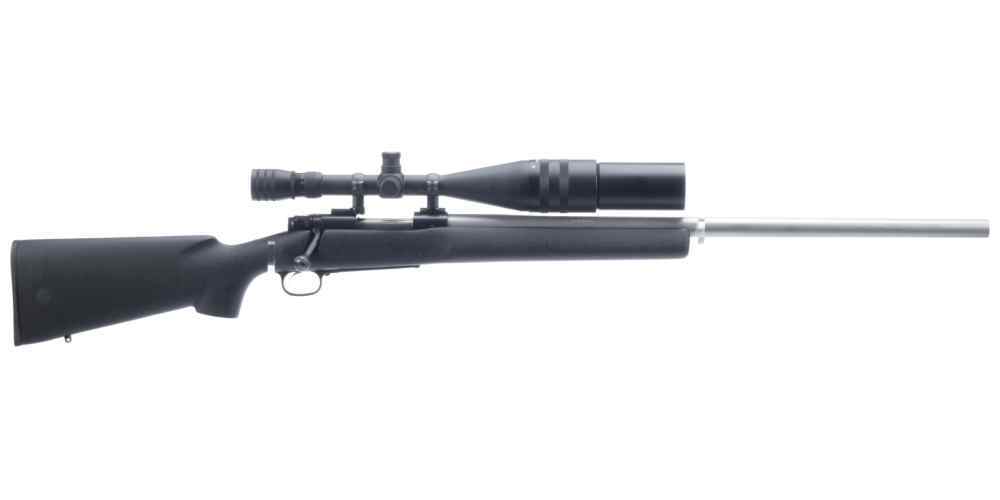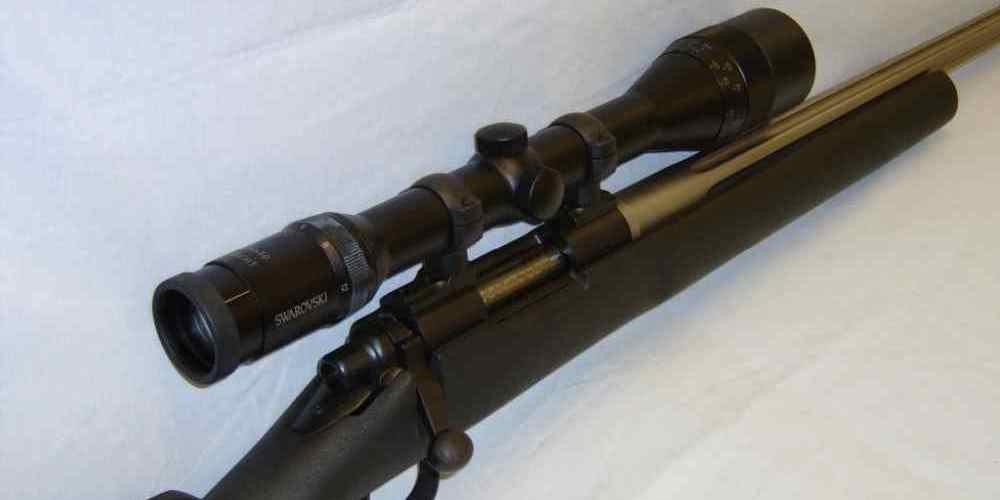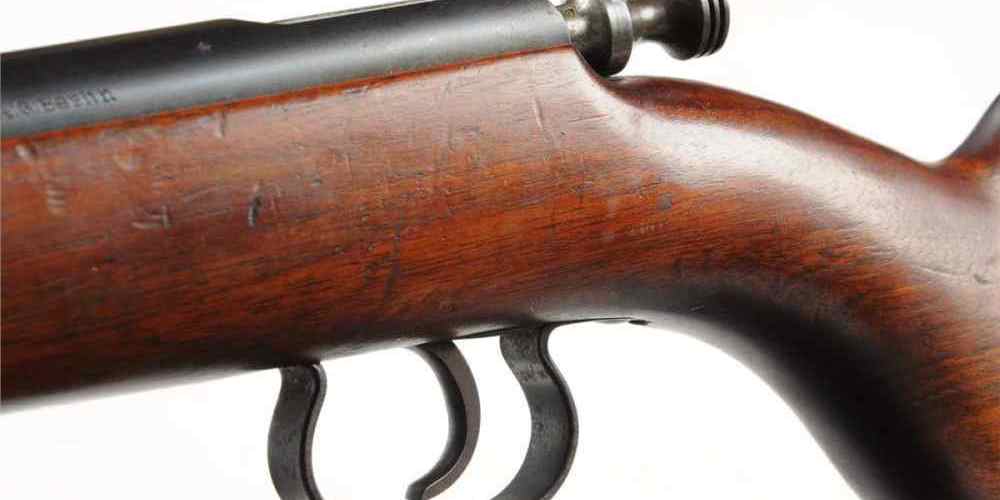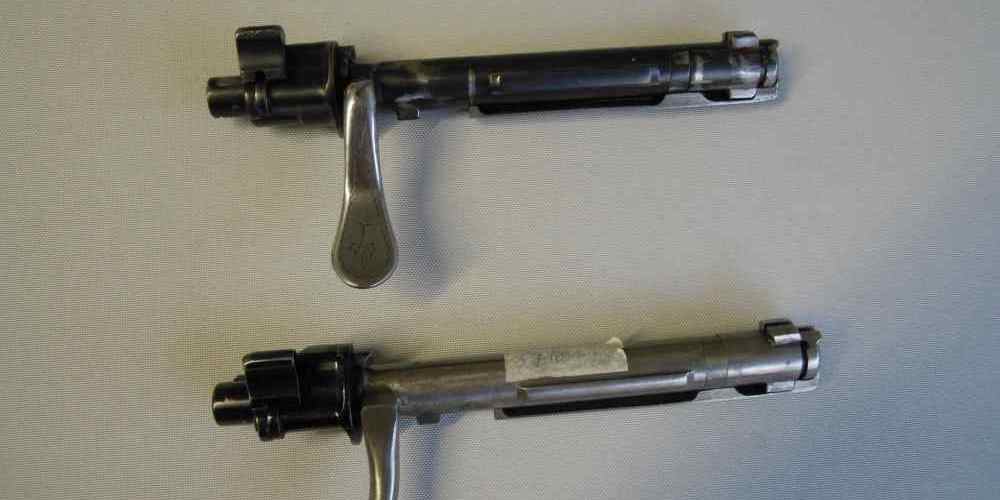“Testing the limits of durability for reliable performance.”
Impact of Bolt Material on Durability
When it comes to rifle bolt strength testing, one of the key factors that determine durability is the material used in the construction of the bolt. The bolt is a critical component of a rifle, responsible for chambering and extracting cartridges, as well as locking the action during firing. As such, it is subjected to high levels of stress and pressure with each shot fired. Therefore, it is essential to use materials that can withstand these forces and ensure the longevity of the rifle.
One of the most common materials used in rifle bolt construction is steel. Steel is known for its strength and durability, making it an ideal choice for high-stress applications such as rifle bolts. However, not all steel is created equal, and the specific alloy used can have a significant impact on the bolt’s performance and longevity. For example, stainless steel is often used in rifle bolts due to its corrosion resistance and high strength. This makes it an excellent choice for rifles that will be used in harsh environments or exposed to moisture.
Another material that is gaining popularity in rifle bolt construction is titanium. Titanium is known for its high strength-to-weight ratio, making it a lightweight yet durable option for rifle bolts. Titanium bolts are also corrosion-resistant, making them ideal for use in outdoor or marine environments. However, titanium is more expensive than steel, which can be a limiting factor for some shooters.
In addition to the material itself, the manufacturing process also plays a crucial role in determining the durability of a rifle bolt. For example, bolts that are forged rather than cast are generally stronger and more durable. This is because forging aligns the grain structure of the metal, resulting in a more uniform and dense material that is less prone to defects. Additionally, bolts that are heat-treated after forging are often stronger and more resistant to wear and fatigue.
It is also important to consider the design of the bolt when assessing its durability. Bolts that feature a larger locking lug surface area or multiple locking lugs are generally stronger and more reliable than those with smaller or fewer lugs. This is because a larger surface area distributes the forces more evenly, reducing the risk of failure under high pressure. Additionally, bolts that are properly heat-treated and finished are less likely to develop stress risers or other weak points that can lead to failure.
In conclusion, the material used in rifle bolt construction has a significant impact on its durability and performance. Steel and titanium are two popular choices, each with its own set of advantages and disadvantages. The manufacturing process and design of the bolt also play a crucial role in determining its strength and longevity. By choosing a high-quality bolt made from a durable material and manufactured to high standards, shooters can ensure that their rifles will perform reliably and safely for years to come.
Importance of Proper Bolt Maintenance
When it comes to rifle bolt strength testing, ensuring durability is crucial for the safety and performance of your firearm. The bolt is a critical component of a rifle, responsible for chambering and extracting cartridges, as well as locking the action during firing. Proper maintenance of the bolt is essential to prevent malfunctions and ensure the longevity of your rifle.
One of the key factors in maintaining the strength and durability of a rifle bolt is regular inspection and cleaning. Over time, dirt, debris, and fouling can build up in the bolt assembly, causing increased friction and wear on the components. This can lead to decreased reliability and accuracy, as well as potential safety hazards. By regularly inspecting and cleaning your bolt, you can prevent these issues and ensure that your rifle functions properly.

In addition to regular cleaning, it is important to periodically test the strength of your rifle bolt. This can be done through a variety of methods, including magnetic particle inspection, ultrasonic testing, and hardness testing. These tests can help identify any potential weaknesses or defects in the bolt, allowing you to address them before they become a problem.
Proper bolt maintenance is especially important for high-powered rifles, as they are subjected to greater stress and pressure during firing. Failure to properly maintain the bolt can result in catastrophic failure, causing injury to the shooter and damage to the firearm. By taking the time to inspect and test your bolt regularly, you can ensure that your rifle is safe to use and will perform reliably when you need it most.
In addition to regular maintenance, it is also important to use high-quality components when assembling or repairing your rifle. Cheap or inferior parts can compromise the strength and durability of the bolt, leading to potential failures down the line. By investing in quality components, you can ensure that your rifle is built to last and will perform at its best.
Another important aspect of bolt maintenance is proper lubrication. The bolt assembly operates under high pressure and friction during firing, and without adequate lubrication, the components can wear out quickly. By applying a small amount of high-quality gun oil to the bolt and other moving parts, you can reduce friction and wear, prolonging the life of your rifle.
In conclusion, proper bolt maintenance is essential for ensuring the strength and durability of your rifle. By regularly inspecting, cleaning, and testing your bolt, you can prevent malfunctions, ensure safety, and prolong the life of your firearm. Investing in quality components and using proper lubrication are also key factors in maintaining the strength and reliability of your rifle bolt. By taking the time to care for your bolt, you can enjoy years of safe and reliable shooting with your firearm.
Comparison of Bolt Strength Across Different Rifle Models
When it comes to choosing a rifle for hunting or target shooting, one of the most important factors to consider is the strength of the bolt. The bolt is a critical component of a rifle, responsible for chambering and ejecting cartridges, as well as locking the action in place during firing. A weak or poorly designed bolt can lead to malfunctions, accuracy issues, and even safety concerns. That’s why it’s essential to understand the importance of bolt strength testing and how it varies across different rifle models.
Bolt strength testing is a crucial part of the design and manufacturing process for rifles. Manufacturers use a variety of methods to test the strength of their bolts, including destructive testing, non-destructive testing, and computer simulations. Destructive testing involves subjecting the bolt to extreme forces until it fails, while non-destructive testing uses techniques like ultrasound or magnetic particle inspection to detect flaws or weaknesses in the bolt without damaging it. Computer simulations allow manufacturers to model the behavior of the bolt under different conditions and identify potential areas of weakness.
Different rifle models may use different materials, designs, and manufacturing processes for their bolts, leading to variations in strength and durability. For example, some rifles may use a one-piece bolt design, while others may use a two-piece design. One-piece bolts are generally considered stronger and more reliable, as they are less prone to failure at the junction between the bolt body and the handle. Two-piece bolts, on the other hand, may be more prone to failure under extreme conditions.
Another factor that can affect bolt strength is the material used in its construction. Most rifle bolts are made from high-strength steel, such as 4140 or 4340 alloy steel. These materials are chosen for their excellent combination of strength, toughness, and wear resistance. Some rifles may also use exotic materials like titanium or carbon fiber for their bolts, which can offer even greater strength and weight savings. However, these materials are often more expensive and may not be necessary for the average shooter.
In addition to material and design considerations, the manufacturing process can also impact the strength of a rifle bolt. Factors like heat treatment, surface finish, and quality control measures can all affect the final strength and durability of the bolt. A well-made bolt will have a smooth surface finish, consistent hardness throughout, and no visible defects or imperfections. Manufacturers that invest in high-quality materials and precision machining techniques are more likely to produce bolts that are strong, reliable, and long-lasting.
When comparing bolt strength across different rifle models, it’s essential to consider not only the material and design of the bolt but also the reputation of the manufacturer. Some brands have a long history of producing high-quality rifles with durable bolts, while others may have a less stellar track record. Reading reviews, talking to other shooters, and doing research on the manufacturer’s reputation can help you make an informed decision when choosing a rifle.
In conclusion, bolt strength testing is a critical aspect of rifle design and manufacturing, ensuring that the bolt can withstand the forces and stresses of firing without failure. Different rifle models may vary in bolt strength due to factors like material, design, and manufacturing process. By understanding these differences and doing your research, you can choose a rifle with a strong and reliable bolt that will serve you well for years to come.
Testing Methods for Evaluating Bolt Durability
When it comes to rifles, one of the most critical components that determine the overall durability and reliability of the firearm is the bolt. The bolt is responsible for chambering and extracting cartridges, as well as locking the breech during firing. As such, it is essential to ensure that the bolt is strong enough to withstand the pressures and forces generated during the firing process.
To evaluate the strength and durability of rifle bolts, manufacturers and gunsmiths rely on a variety of testing methods. These methods are designed to simulate the conditions that the bolt will experience during normal use, as well as extreme scenarios that may occur in the field. By subjecting the bolt to these tests, manufacturers can identify any weaknesses or potential failure points and make necessary improvements to ensure the bolt’s longevity and reliability.
One of the most common testing methods used to evaluate bolt strength is the proof load test. In this test, the bolt is subjected to a load that is significantly higher than the maximum pressure generated during firing. This test is designed to ensure that the bolt can withstand the forces generated during firing without deforming or failing. By exceeding the maximum pressure, manufacturers can be confident that the bolt will not fail under normal operating conditions.
Another important test used to evaluate bolt strength is the fatigue test. In this test, the bolt is subjected to repeated cycles of loading and unloading to simulate the stresses that it will experience during firing. This test is crucial for identifying any potential fatigue failures that may occur over time. By subjecting the bolt to thousands of cycles, manufacturers can determine its fatigue life and make necessary improvements to ensure its longevity.
In addition to these tests, manufacturers also conduct material analysis to evaluate the composition and properties of the bolt material. By analyzing the material’s strength, hardness, and toughness, manufacturers can determine its suitability for use in rifle bolts. This analysis is crucial for ensuring that the bolt material can withstand the forces and pressures generated during firing without deforming or failing.
Overall, testing methods for evaluating bolt durability are essential for ensuring the reliability and longevity of rifle bolts. By subjecting the bolt to proof load tests, fatigue tests, and material analysis, manufacturers can identify any weaknesses or potential failure points and make necessary improvements to ensure the bolt’s durability. These tests are crucial for ensuring that rifle bolts can withstand the forces and pressures generated during firing and provide reliable performance in the field.
Benefits of Investing in High-Quality Bolt Materials
When it comes to rifles, one of the most critical components that determine the overall durability and performance of the firearm is the bolt. The bolt is responsible for chambering and extracting cartridges, as well as locking the breech during firing. As such, it is essential to invest in high-quality bolt materials to ensure the longevity and reliability of your rifle.
One of the primary benefits of investing in high-quality bolt materials is increased durability. Bolts made from strong and durable materials such as stainless steel or titanium are less likely to wear out or break under heavy use. This means that your rifle will be able to withstand the rigors of shooting for longer periods without needing frequent repairs or replacements.
In addition to durability, high-quality bolt materials also offer improved performance. Bolts made from premium materials are more resistant to deformation and warping, which can affect the accuracy and consistency of your shots. By investing in a high-quality bolt, you can ensure that your rifle will maintain its precision and reliability over time.
Another benefit of investing in high-quality bolt materials is increased safety. A bolt that is made from inferior materials or is poorly constructed can pose a safety hazard to the shooter. A bolt that fails during firing can result in serious injury or damage to the rifle. By choosing a bolt made from high-quality materials, you can reduce the risk of malfunctions and ensure a safer shooting experience.
Furthermore, high-quality bolt materials can also enhance the overall aesthetics of your rifle. Bolts made from premium materials such as polished stainless steel or titanium can add a touch of elegance and sophistication to your firearm. Not only will your rifle perform better, but it will also look more attractive and appealing.
In order to ensure the durability and reliability of a rifle bolt, manufacturers conduct rigorous strength testing to determine the maximum load that the bolt can withstand before failure. These tests involve subjecting the bolt to extreme pressures and forces to simulate real-world shooting conditions. By testing the bolt’s strength, manufacturers can identify any weaknesses or defects in the design and make necessary improvements to enhance its performance.
One common method of testing bolt strength is the proof load test, which involves applying a specific amount of force to the bolt to determine its maximum load capacity. This test helps manufacturers determine the safety margin of the bolt and ensure that it can withstand the pressures of firing without failing.
Another method of testing bolt strength is the fatigue test, which involves subjecting the bolt to repeated cycles of loading and unloading to simulate the wear and tear that occurs during shooting. This test helps manufacturers identify any potential weaknesses in the bolt’s design and ensure that it can withstand the stresses of continuous use.
Overall, investing in high-quality bolt materials is essential for ensuring the durability, performance, and safety of your rifle. By choosing a bolt made from premium materials and undergoing rigorous strength testing, you can rest assured that your firearm will perform reliably and consistently for years to come. So, next time you are in the market for a new rifle bolt, be sure to prioritize quality and durability to get the most out of your shooting experience.





